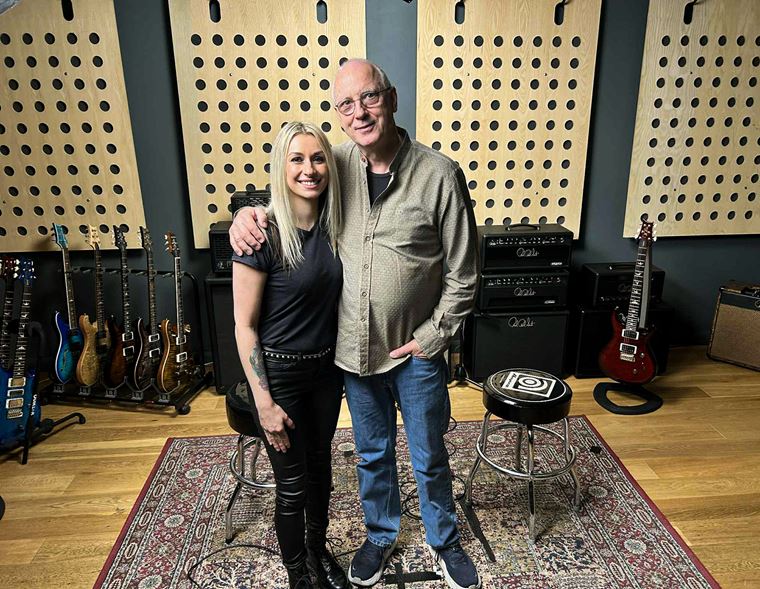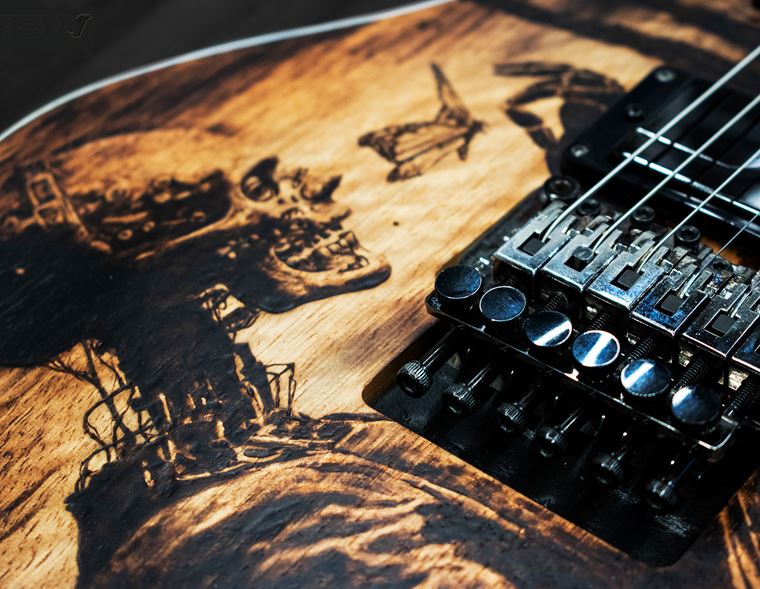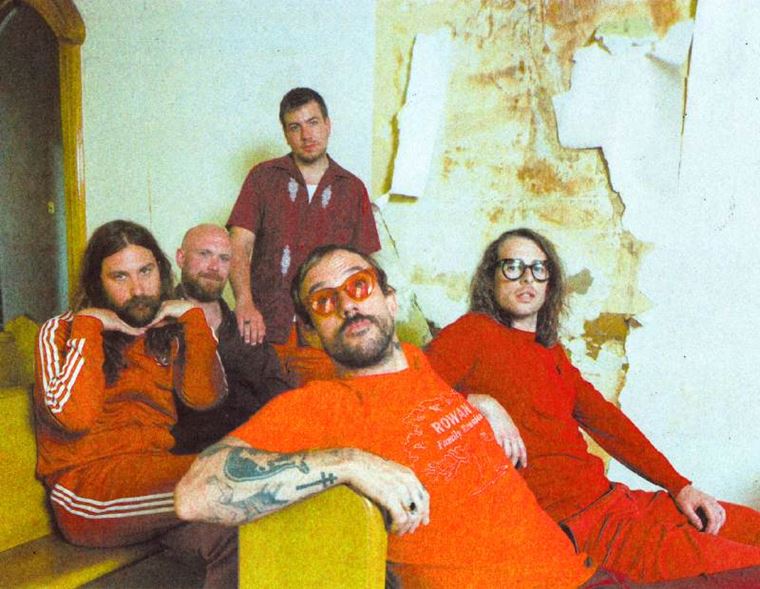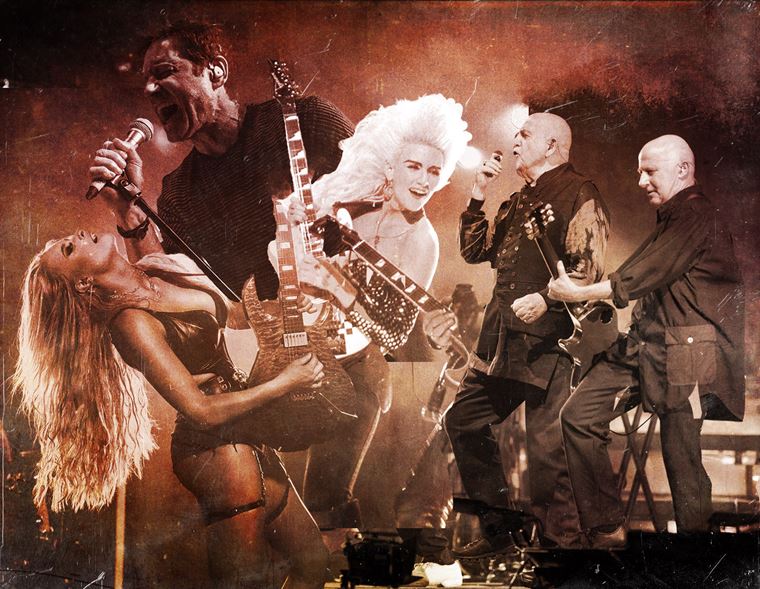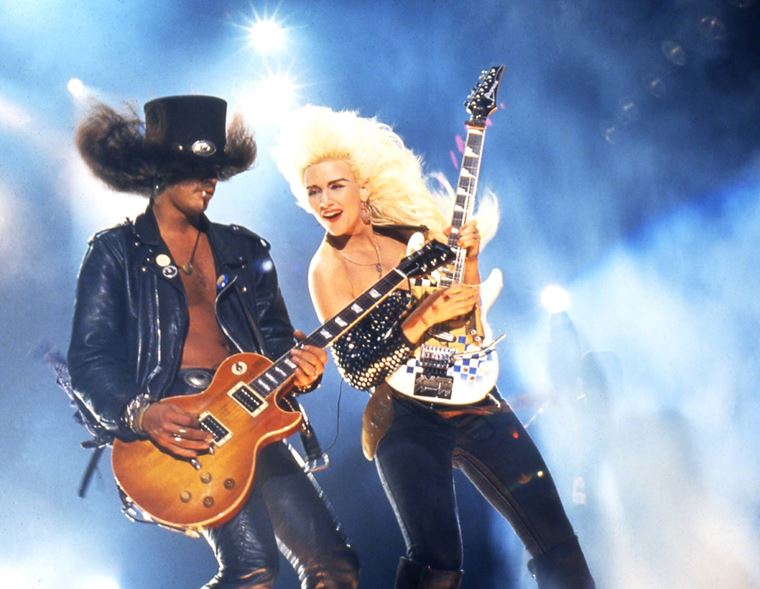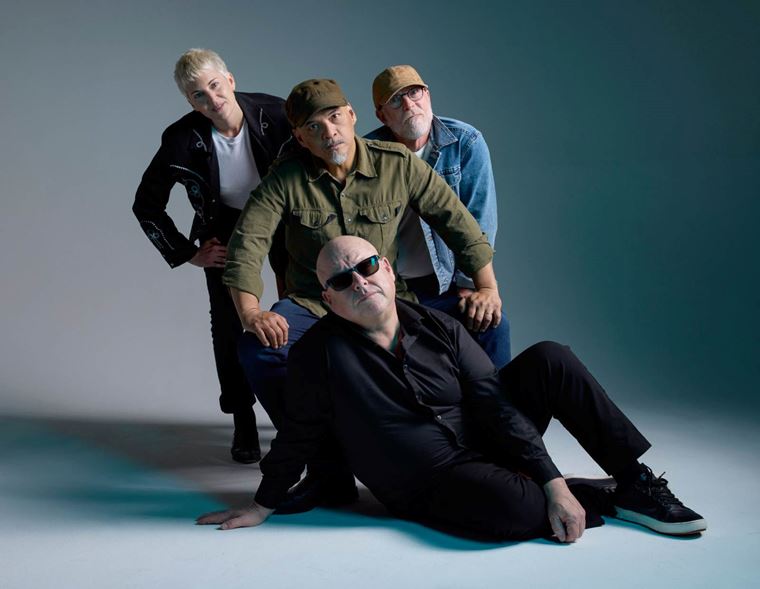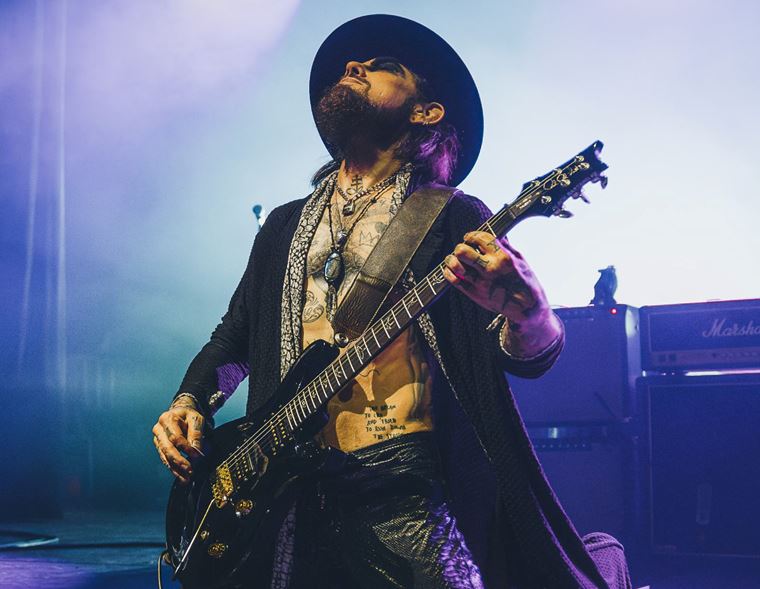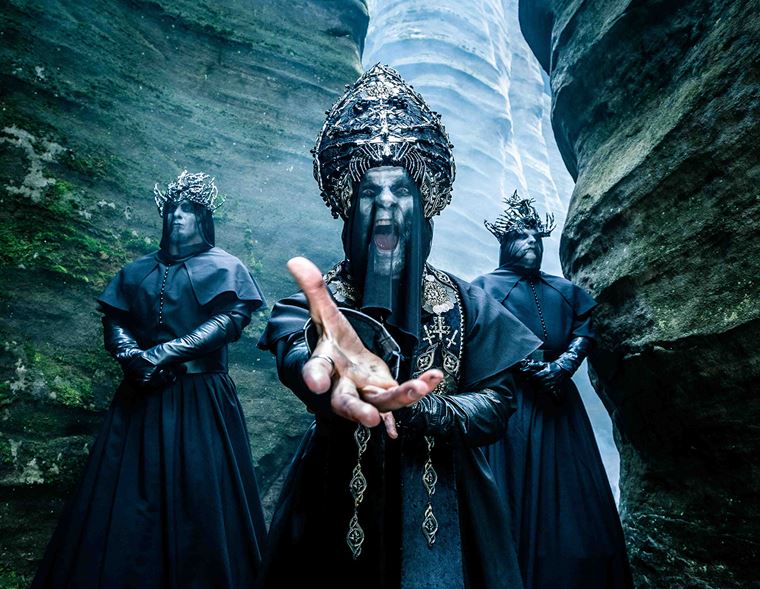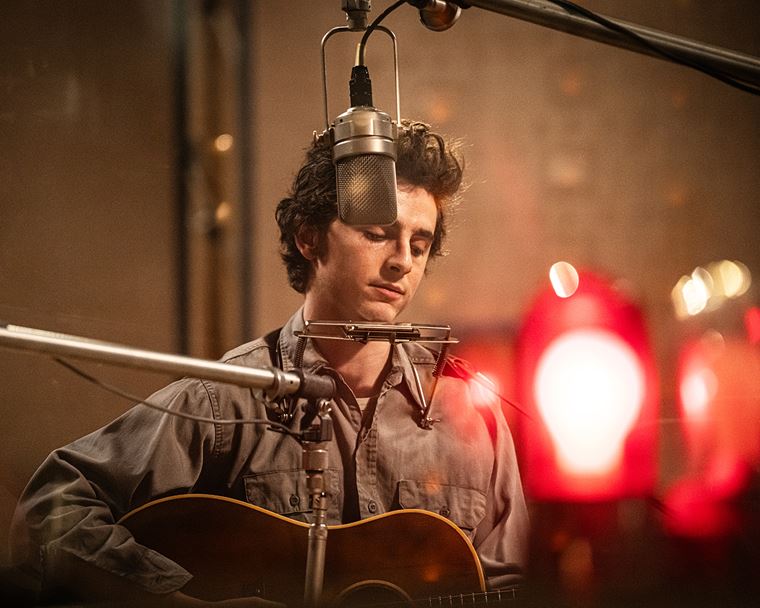Walk the Sky, Washing Dishes and Dialling in Killer Tone: MARK TREMONTI Talks!
Mark Tremonti is an old-school guitar hero. A songwriting machine, riff master and carrier of the rock flag, Tremonti also knows the power of a well-placed divebomb and pick squeal. This makes him a significant figure in today's guitar-playing landscape.
He's also been a very visible PRS man for decades, with a long-running range of signature models bearing his preference for singlecut bodies and tremoloes. The ex-Creed and current-day Alter Bridge guitarist is well known as a gear-geek too, so I was more than happy to take a trip to his dressing room for a chat when Alter Bridge recently played in Glasgow.
Mark was a delight to talk to, and though our time was short, we managed to cover a fair amount of ground. Read the full transcription below!
GG: So why don’t we begin with ‘Walk the Sky’?
MT: Yeah!
GG: Lots of massive riffs and big melodies as always, but there’s kind of a different vibe to it this time. I noticed there’s more of a kind of synthesizer-ey...
MT: Yeah.
GG: Epic sort of...more epic than normal! So, was this a sound you guys decided that you wanted to work on, or did it just come out as a natural process?
MT: Yeah you know, I came across a song on the radio that I really loved, and I sent it to Myles and said: “I really wanna add....” – I was never really a fan of Hard Rock bands who used polished synthesizers. It was just never my thing, you know? To each their own, but I just never thought I’d have a band with that kind of thing in there.
GG: Sure.
MT: And then I heard this song, and I heard that retro synth stuff that we grew up on: stuff you’d hear on a John Carpenter movie, when the synths were just coming about.
GG: I love John Carpenter.
MT: Yeah! I love it: the creepier, more ominous-sounding synth applications. So, that’s what I started chasing down for this record. Songs like ‘Pay No Mind’ and ‘Godspeed’ and a handful of others had that peppered in there. But a lot of times, um, Myles...there’s a pedal that we both experimented with, and I said that, when tracking, he’s using it. So, stuff that you might think is a keyboard is actually Myles’ guitar part.
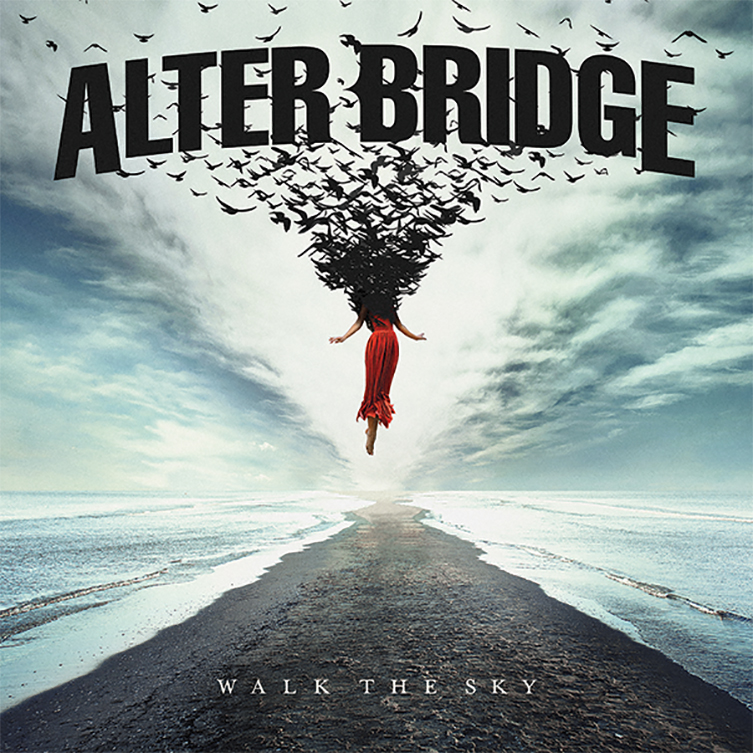
GG: Oh! Do you remember what pedal?
MT: It was a little white pedal. Our producer gave it to me one night and I loved it! It’s fun, it’s like a...I can’t remember the name of it, it’s just a little white pedal that has all kind of synth things. Like, you play your guitar through it and you can switch through, I don’t know, 15 different kinds of synths.
GG: Is it one of those Electro-Harmonix pedals? Like the MEL9? Where you get an overall style but you can then fine-tune it?
MT: No, you can’t fine-tune it too much, there are two main knobs and one that switches through all of the sounds.
GG: Ok, cool.
MT: But it was very cool. And so, on the record, when we were going through the mix process, I was sitting down and calling Elvis, our producer, saying ‘Listen, I love the synth stuff but let’s pull it down a little bit!’, you know? And he said: ‘that’s not synth, that’s Myles’ guitar part!’
GG: Yeah: ‘Pull Myles down a bit!’
MT: Hahaha! So I’m like, Ok, well that’s cool, because I just didn’t want something all over the record that wasn’t gonna be performed live. So, the songs there where there wasn’t Myles’ guitar part, like ‘Pay no Mind’ and ‘Godspeed’, my guitar tech, Frosty, plays keyboards live. I don’t wanna do anything on the record that you don’t really hear too much live.
GG: Not when there are already loads of bands who have the ‘press a button and it all happens’ thing. You guys are very much a live band, why would you not play to your strengths, you know?
MT: Yeah.
GG: Cool! So, talking about sounds, one thing I always noticed, from back in the Creed days onwards, is that your guitar tone itself is exceptional. Is that something you think is inherent to the player, like no matter what you use, you’ll always sound like you? Or has it been a matter of refinement to the point where it’s brilliant?
MT: Um, I think it has a LOT to do with fingers, a lot to do with how you play the guitar. But, um, you definitely have to have the right tools! I’m not gonna plug into a Fender Champ and sound like this!
GG: Hahaha, you’re not! Broad strokes!
MT: Haha, you know? We had a guy, a Nashville guy, come out on tour with us and he was like (adopts ‘douchebag’ accent) ‘Man, any guitar player should be able to plug into a Fender Twin and get whatever tones he needs’. I’m like: ‘You don’t understand, this is different!’
GG: Tell that to Rammstein.
MT: Yeah! Fender Twin is good for cleans and some broken-up Bluesier kinda stuff but it’s not good for Metallica.
GG: No, if you grow up with Metallica and all of these Thrash bands. Like, we are Post-Pantera! Do you know what I mean?
MT: Yeah! Yeah.
GG: It’s a whole different world. So, anyway, talking about gear: you’re a long-time PRS artist. And the Tremonti guitars are amongst the most popular PRS models. Bearing in mind that that’s what you mainly play, what is it about the Tremonti model that you needed to have to make it so that you’re not going for, say, a Les Paul, or any other type of guitar?
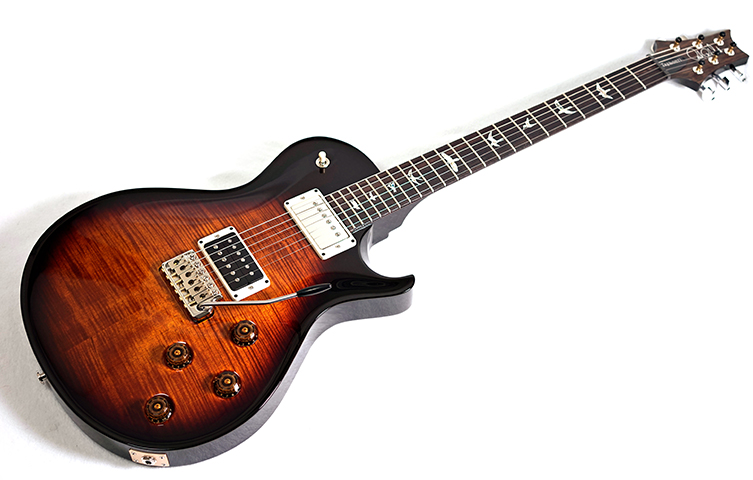
MT: I mean, I love, I grew up on Les Pauls! It’s (the PRS Tremonti) pretty much in the same world as the Les Paul. It’s a Singlecut, but to me it’s just, uh, I dunno, more precise? I think that every time I pick up a Les Paul, some of them are the best I’ve ever played, and some are not so good. You know, there’s not a lot of consistency with them at times. I’m not trying to talk bad about them at all! But I feel like the PRS is a little more fine-tuned.
GG: I think that’s a good way of putting it. Attention to detail with it.
MT: Yeah.
GG: I don’t know if you agree with this, but I noticed, going from Gibson to PRS, there’s a sort of clarity involved, that I wasn’t used to hearing. No matter how heavy it gets, you can hear the fundamental, the third, the fourth, all parts of the chord ringing through. You play a chord on the Les Paul, maybe one of its strengths actually is that it doesn’t do that? It’s kinda swampy. Would you agree with that?
MT: Yeah, and that’s one thing, when we designed the pickups for this guitar, I wanted to get rid of any kind of swampiness! I wanted for it to be super-clear! And one thing, I’m developing my MT100 right now (Mark’s signature amp with PRS), we put out the MT15 and I love that amplifier, it’s sitting right there next to you. I love it, it’s my favourite amplifer in the world right now.
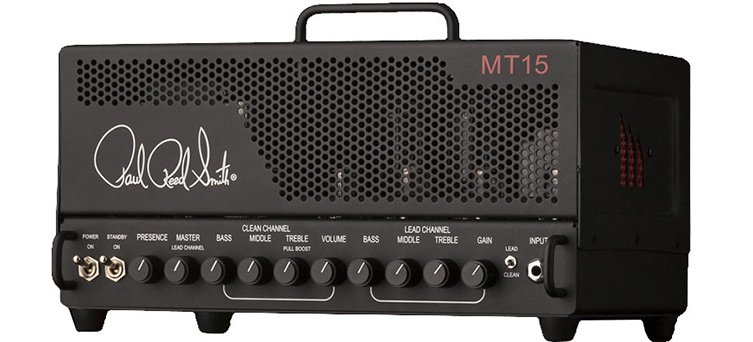
But right now, we’re designing the MT100. I’m on about the fourth revision of it and I brought it right into the studio while the Sevendust guys were recording their record in Orlando. And John (Connolly, Sevendust guitarist) is out here right now and I said: ‘So, tell me, how’s it going with the amp? And he’s like ‘You know what? You’ll have the gain way up and you hit a chord and you’ll hear every note in that chord on the record. Even though you’re high gain, you’re going for it, it’ll usually just be a big wash, but you can hear every single thing you’re playing in there.
GG: Wicked.
MT: You know, we’re really dialled that map in, where the clean tone is probably the best clean tone I’ve heard, it’s incredible. As soon as we brought that in for the studio, the guys were like ‘this is incredible’, this clean tone. The dirty tone, we’re still dialling it in but it’s already super clear.
To me, you walk the fine line between and amp that kicks you in the nuts when you’re playing rhythm, Chu-chu-chu, you know, the chunky stuff.
GG: Yeah.
MT: But then, you know, if you go to play a lead on an amp like that sometimes, it’s harsh and not soothing, it’s not smooth.
GG: Yeah!
MT: I’m trying to make these amps do both. You know, be able to kick you in the chest and also have the singing lead sound.
GG: That would be perfect.
MT: Yeah.
GG: I was talking to Zach (Myers, guitarist from Shinedown, who are playing on the same tour) earlier in the afternoon. I always ask people about plectrums, because I think it’s so important and so overlooked.
MT: Yeah.
GG: He said you’re going through a crisis of plectrums at the moment!
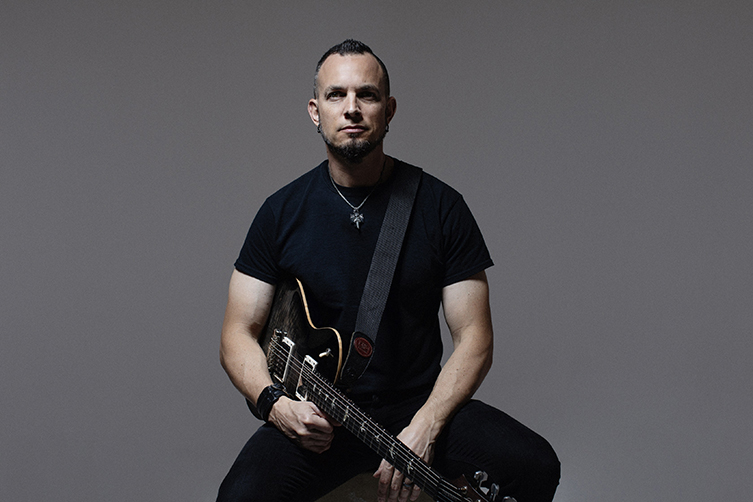
MT: This is what I’ve landed on (Mark passes one of his picks across) recently.
GG: Ahh, the Flow! (Dunlop Tortex Flow) I’ve tried the .88mm. I love Tortex but I find that, with the shape, I’m hitting too much of my thumb when I don’t want to. It’s like constant Billy Gibbons vibes.
MT: Haha, yeah! I like nylon the best. They don’t make this shape in nylon. I like 1.35mm for some reason. I like the shape of the Flow, but I don’t like the Tortex. I wish this was nylon. It slides too much here (demonstrates with his hand) and sticks too much here on my thumb. On the nylon, it has bumps and grooves on it so you can slide over it but it doesn’t slip at the same time.
GG: Do you know the knife trick? Where you score a little hex pattern?
MT: Yeah, but sometimes it sticks too much when I do that! Nylon, to me, is perfect. And these (Tortex) ones wear down in three songs. Nylon, I can get through a whole show on one.
GG: Big time. I wonder if they changed the plastic? I don’t remember Tortex doing that back in the day.
MT: No. Live, I play really hard. I could practice with this pick all week long, but as soon as I get on stage, three songs into it, my adrenaline flows and I pick really hard.
GG: Yeah, totally. So, let’s talk about the guitar playing then. Obviously, your lead guitar playing is exceptional and I’d like to talk about how you ‘get out of the box’, but more than that is the riffs themselves. There are a lot of exotic note choices going on. Are you learning a lot of theory and then applying it? Or are you just playing and what comes out comes out?
MT: So, anything that ends up being exotic is usually when I’ve got to a new tuning and all of a sudden, I don’t have any scale references anymore. Like on the new record, I did a solo for ‘Dying Light’. It has a very...uh, Phrygian-ish, kind of Ahavo Rabo maybe, I dunno, Hungarian Minor! Whatever! That kinda vibe! And that happened just because the tuning was such that, over that chord progression, I had to make the best use of that tuning and I made some cool shapes that I wouldn’t have in standard tuning.
So that’s what I love about alternate tunings. If I get through pre-production on a record and look at the scope of work I have to do, I’ll say: ‘Alright, I have 12 guitar solos’. If I have four of them in alternate tunings, I jump for joy because that’s four songs where I can write something completely fresh. That’s a third of the record where I don’t have to kill myself like studying, studying, studying and learning as much as I can. Because with alternate tunings, you’re forced to look at the guitar as a blank canvas and just create, like you did when you were a kid before you knew how to play.
GG: That’s a good way of putting it, yeah.
MT: You’re a kid mentally, looking at the guitar but with the skills of an adult. With what you’ve worked on for years.
GG: The one I was thinking about is ‘Wouldn’t You Rather’, which is the second or third song on Walk the Sky?
MT: That’s the second track.
GG: That’s got that big, pounding riff. So, I’m wondering, when you’re sitting at home, writing riffs, do you have a stockpile of riffs? Like, ‘these are great riffs for a new record’, ‘there are okay’, ‘these suck’. Do you do that?
MT: The suck ones I don’t keep but, um, I have, I mean I could pull out my computer right now and show you, I have riff files of...pfff, I probably have a thousand riffs right now that I just have logged.
GG: Wow!
MT: So, when I write music, I, uh, if I don’t sign to something and I get along to organising that idea, I call it a riff. Even if it’s a fingerpicking part, or whatever it is. So, if it’s a musical part without music, I put it into a riff file, get out my phone and tap tempo it. Also, I’ll explain to myself how I play it (on the recording), if it’s in Open G tuning, I’ll write down ‘Open G, fingerstyle, 100bpm’, and I’ll go to my riff files, I have many of ‘em so I’ll go to the newest one, and I log them from slow to fast.
GG: Oh, cool!
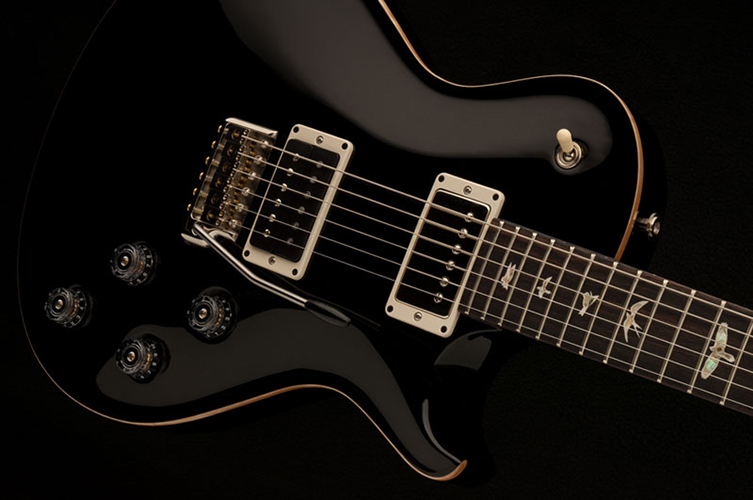
MT: So, if I’m writing a song that needs a riff, I go to my riff files, tap up the tempo of the song – and I go within ten beats per minute of whatever the song’s at – and I’ll farm all of these ideas out of my riff files. So, for any given song, I’ll have at least forty or fifty riffs to choose from and then I’ll just pick the best one.
GG: That’s amazing! That’s really good advice for people!
MT: I throw out the bad stuff! And I log my ideas with symbols next to them. So, if I have a spaceship next to it, it means it’s out of this world, I love it! And if it has an explosion, it’s the bomb! If it’s an accordion next to it, you’ve just recorded that, if you don’t like it, erase it. There’s a hierarchy scheme, so I put the best ideas first. I look for those spaceships!
GG: The spaceships win over the accordion, totally! Haha! And when you go through those riffs, do you intrinsically go ‘this is a solo record riff’, ‘this is an Alter Bridge riff’?
MT: If it has Speed Metal elements to it, it’s usually a ‘Tremonti’ thing. Yeah, tremolo picking, horse-galloping, something like that. If I need a rhythm section to be like ‘Brrrrrrr-kakakaka’ (fast drum noises), real syncopated with the right hand, it’s usually a Tremonti thing. Y’know, Scott and Brian (Alter Bridge drummer and bassist) are more of a Classic Rock kind of, y’know...
GG: The feel?
MT: Brian’s into like Rush and Iron Maiden. That’s as heavy as he gets. I grew up on Speed Metal, so it’s my thing.
GG: Was that like Testament? Slayer?
MT: Even, like, Nuclear Assault: just, dun-dun-dun blast beat stuff.
GG: Oh wow, right! Well, let’s go back a wee bit then. Not that we’re jumping over to talk about Creed or anything but, when you guys brought out your first record, as far as I understand it was self-financed, and you guys went out and did it yourselves. I was just wondering about what you did to really get out there in people’s faces and make them listen? Was it just relentless gigging?
MT: We played in town, um. I think what helped us the most was...it wasn’t even the gigging; it was getting our song on the local radio station.
.jpg)
(Photo: Dan Sturgess)
GG: OK.
MT: I remember our old manager, Jeff Hansen, he managed all the local Rock bands. So, one night, he called together all of his bands. It was like a bunch of gangs in one room. All spread out, there must have been seven or eight bands in there.
GG: Like Gangs of New York.
MT: Pretty much! So, he was like: ‘I have to now kind of pick the bands I’m gonna work with, cuz I gotta focus’. So, it was like us and this other band, they were the two he stuck with. We recorded, uh, we saved up, I was working at a restaurant, Scott (Stapp, Creed vocalist) was working at a restaurant, the other Scott was working in a knife store and Brian, y’know, had rich parents who put him through college (smiles), so he wasn’t working.
So, we saved up money to make demos, and then our manager knew the local radio people. He got it on the locals only show, which is easy: anybody can get on the locals only show! That’s what it’s for. So, he got us on the locals only show and the response was so good that the station was nice enough to put us on full rotation. And then a station up in Milwaukee (Creed were from Tallahassee, Florida - Ray) the Milwaukee Laser, heard the track and started playing it all the way in Milwaukee. This unsigned band.
People have their pulse on the radio system in America: ‘What the hell is this band getting an ad in the Milwaukee Laser? And playing in Tallahassee? I gotta look at this!’ We popped up again in Gainesville or something and record labels started coming. It was the number one most requested song.
GG: Wow! And were you working at the restaurant while all this was happening?
MT: Yes! Yeah.
GG: It’s good to know, for perspective.
MT: Yeah.
GG: I’ve got one last question, since I think we’ve running out of time. As a younger guy, I used to always buy imported copies of (US guitar magazine) Guitar World. You were quite often, on a number of occasions, voted Guitarist of the Year. So, the first obvious question is: how does that make you feel as a player? And the second thing I wondered about was: does that make you feel like you have to kind of ‘represent’? To shred on a song more than you otherwise might? Like, you think ‘I’ve been voted the best. This song doesn’t need a solo, but it’s getting a solo!’ Did it affect your thinking process?
MT: You know, after this new Guitar World came out, um, when something like that comes out, you feel a lot of pressure! You just picture all the guitar players who are fans of John Petrucci, or Joe Bonamassa, or Eric Gales, these incredible players! And these other players who voted have put you up on this pedestal...
GG: Mm-hmm.
MT: All it makes me do is play guitar around the clock! Try to earn that title.
GG: Sure.
MT: Um, but I don’t think I earned it from being somebody who’s just doing technical guitar playing constantly: I think it’s more about bringing the guitar into the more commercial, the more ‘Rock’ world. You know? Try to do your best to play guitar for the song.
GG: More accessible, rather than more overtly shreddy stuff.
MT: I love that kinda stuff! I spent hours and hours and hours learning Steve Vai stuff. Months! And I love playing that style but I’m essentially a songwriter, first and foremost. Wherever I go on guitar, it has to serve the song.
GG: The song is the King.
MT: Yeah!
The door to Mark’s suite creaked open. My time was up! I knew I didn’t have long, but those minutes flew by! Mark and I shook hands, and he headed off to the next part of his busy pre-show schedule. I made my way through the backstage warren of corridors and doors, eventually finding myself in a throng of pre-gig Alter Bridge fans in the venue foyer. The buzz form earlier had intensified, this close to showtime. These were the VIP guests, the Meet ‘n’ Greeters, and there were loads of them! It’s good to see people getting so excited about the prospect of live Rock music.
Later in the evening, the venue was filled to its considerable capacity. The crowd has baying for huge riffs and huger vocals, having been warmed up nicely by both The Raven Age and Shinedown. The house lights went down, the roars went through the roof and Alter Bridge took position on their large stage. Launching straight into the colossal new epic ‘Wouldn’t You Rather’, the guys completely destroyed the audience.
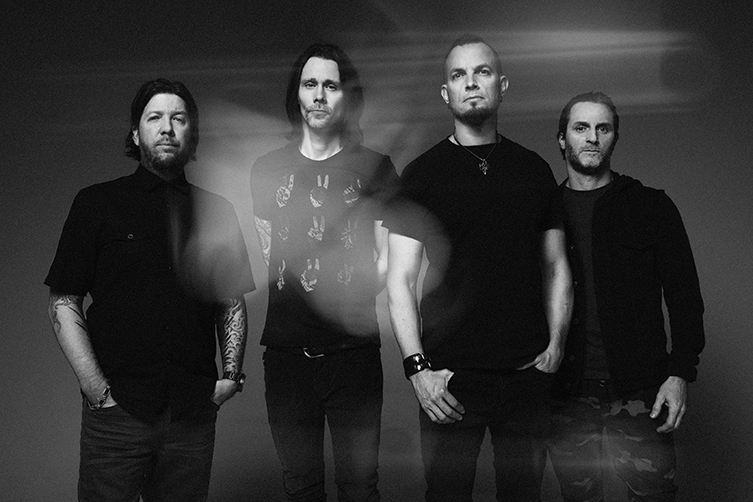
Start as you mean to go on!
The next hour and forty-odd minutes were a masterclass in modern Rock: dynamic, earnest, heavy and exciting, Alter Bridge know their craft and know their audience. At one point, Mark even gave away one of his signature PRS guitars to an audience member! It pays to be near the front at an Alter Bridge gig!
The crowd obviously adore them, and the band clearly feed off that. It’s a reciprocal, toroidal flow of energy. It’s truly refreshing to see a powerhouse Rock band delivering the goods with no pretence or sense of pandering to fashion. We got the riffs, we got the choruses, we got the shred bits, we got lights and pyro: we got a Rock show.
Keep up with Mark and the guys via the Alter Bridge website. Check out our Mark Tremonti guitars and amps on our site.
We’d like to thank Mark for giving up some time from his hectic schedule to hang with us! We’d also like to thank Helen and Kirsten for all of their help in organising this.
Thanks for reading!
Until next time.


